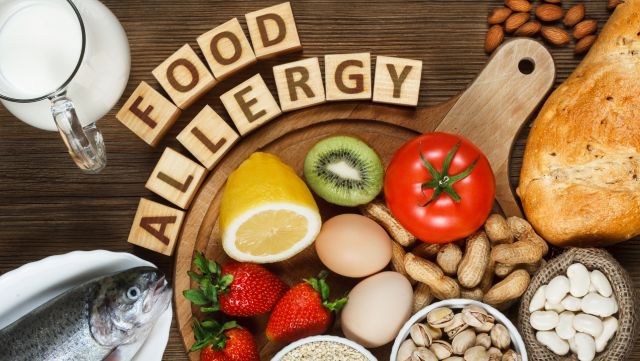Food allergy
What is food allergy?
Food allergy refers to the condition when the human body has ingested certain harmless foods and mistakenly treated certain proteins in food as harmful substances. The reaction incorrectly activates the defence mechanism of the immune system, causing immediate, serious or even life-threatening symptoms (such as serious peanut allergy) or other chronic symptoms (such as gluten allergy, also known as celiac disease). Skin rashes, runny nose, itchy skin, vomiting, etc. are common symptoms of allergy. In severe situations, it may induce dyspnoea, the dropping of blood pressure, and even death. Allergic reactions are repetitive, and the same symptoms will be induced whenever the same foods are eaten.
Some common food allergens include milk, eggs, wheat, soybeans, nuts and peanuts, fish, shellfish and crustaceans. Children with food allergies are generally allergic to foods such as wheat, eggs and soybeans. However, not every food allergy reaction will improve with age. For examples, foods such as fish or peanuts will pose long-term threats to patients who are allergic to them. Besides, certain foods may suddenly become allergens to certain people, even if such foods had not posed any allergic reactions or caused any problems in those people during their childhood.
